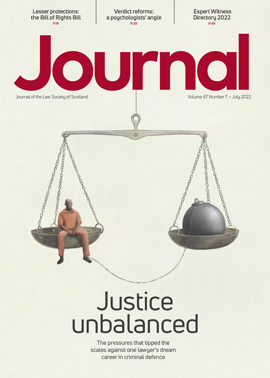Immigration: Asylum system overhauled
On 28 June 2022, the Statement of Changes to the Immigration Rules dated 11 May 2022 came into effect. The modifications reflect the changes required now that the Nationality and Borders Act 2022 has been passed. The Government’s “New Plan for Immigration” has been described as the “biggest overhaul of our asylum system in decades”, and as such, it is important to consider the impact that it will have on those who seek protection in the UK.
There will essentially now be two categories of refugees in the UK, otherwise known as Group 1 and Group 2 refugees. Generally, those in Group 1 will have arrived in the UK directly from the country where they fear persecution and claimed asylum without delay. However, those who will be categorised into Group 2 will not be able to meet these requirements. If an individual has entered the UK illegally, or is in the UK illegally, they will be required to show good reason for their unlawful presence. There will be a number of stark differences between those in Group 1 and Group 2, and there has been some debate as to whether those in the latter group will be regarded as “second class” refugees due to the limitations that will be placed on them.
Group 1
This group will encapsulate those who arrive in the UK directly from the state in which they fear persecution, without passing through a third country. Group 1 refugees will be granted five years’ leave to remain and it will be possible for them to apply for settlement after those five years. Group 1 refugees will also be eligible to apply for family reunion, meaning their spouse and children can apply to join them in the UK. The family reunion rules are extended to permit adult children also to apply to come to the UK, if there are exceptional circumstances. Many of the Group 1 rules mirror the system in place prior to 28 June.
Group 2
If an individual is granted leave to remain as a Group 2 refugee, they will be permitted to stay in the UK for 30 months. The same will apply for those who are granted humanitarian protection. It will then be possible for people on those routes to renew their leave for a further 30 months. They will not be eligible for settlement until they have had leave to remain for a total of 10 years, effectively doubling the time that certain persons will be required to be in the UK before they can apply for indefinite leave to remain. The reason for this shorter period of leave is to ensure that those granted leave under the Group 2 rules will be regularly assessed for removal from the UK.
Group 2 refugees will also not be permitted to apply for family reunion, unless there are insurmountable obstacles to their family life continuing outside the UK. This means that those who are granted leave through this route will not in most cases be able to apply for their family to join them. In addition, those with leave under this section of the Immigration Rules will have a “no recourse to public funds” condition attached. This condition has been found to be unlawful on a number of occasions, most recently in June of this year.
Implications of the changes
The new rules explicitly treat different groups of asylum seekers differently, and concerns have been expressed about this by the UNHCR as well as other organisations. The stark difference between the two categories of refugees does seem somewhat unfair. There are many reasons why an individual may pass through a safe third country en route to the UK. However, these are unlikely to be considered by decision makers under the new rules.
Nevertheless, the Government is keen to press on and ensure that the asylum system is overhauled. The delays at present are extremely concerning, with there being just under 110,735 individuals awaiting a decision on their initial asylum claim. There is also an approximately 20 week wait for an initial interview. On the surface, this remodelling of the asylum system seems as though it may exacerbate issues that are already in place. However, it remains to be seen how the rules will work now that they are in force.
Perspectives
Features
Briefings
- Civil court: Issues on appeal
- Licensing: Minimum pricing – a genuine impact?
- Insolvency: How to admit joint creditor claims
- Tax: windfall and plastic packaging taxes raise stakes
- Immigration: Asylum system overhauled
- Scottish Solicitors' Discipline Tribunal: July 2022
- In-house: In with the stonework
- Property: Living with the Register of Overseas Entities
In practice
- OPG update: July 2022
- Public policy highlights: July 2022
- Gear up for the Scottish Legal Walks
- Disabled solicitor support group proposed
- Risk: Cybercrime – the hybrid worker prey
- Ask Ash: Piling it on
- TRS: time for a trusts trawl
- Know people, know business
- High street and hybrid
- Appreciation: Ian Leslie Shaw Balfour
- The Expert Witness Directory 2022
- Expert witness: case law update







